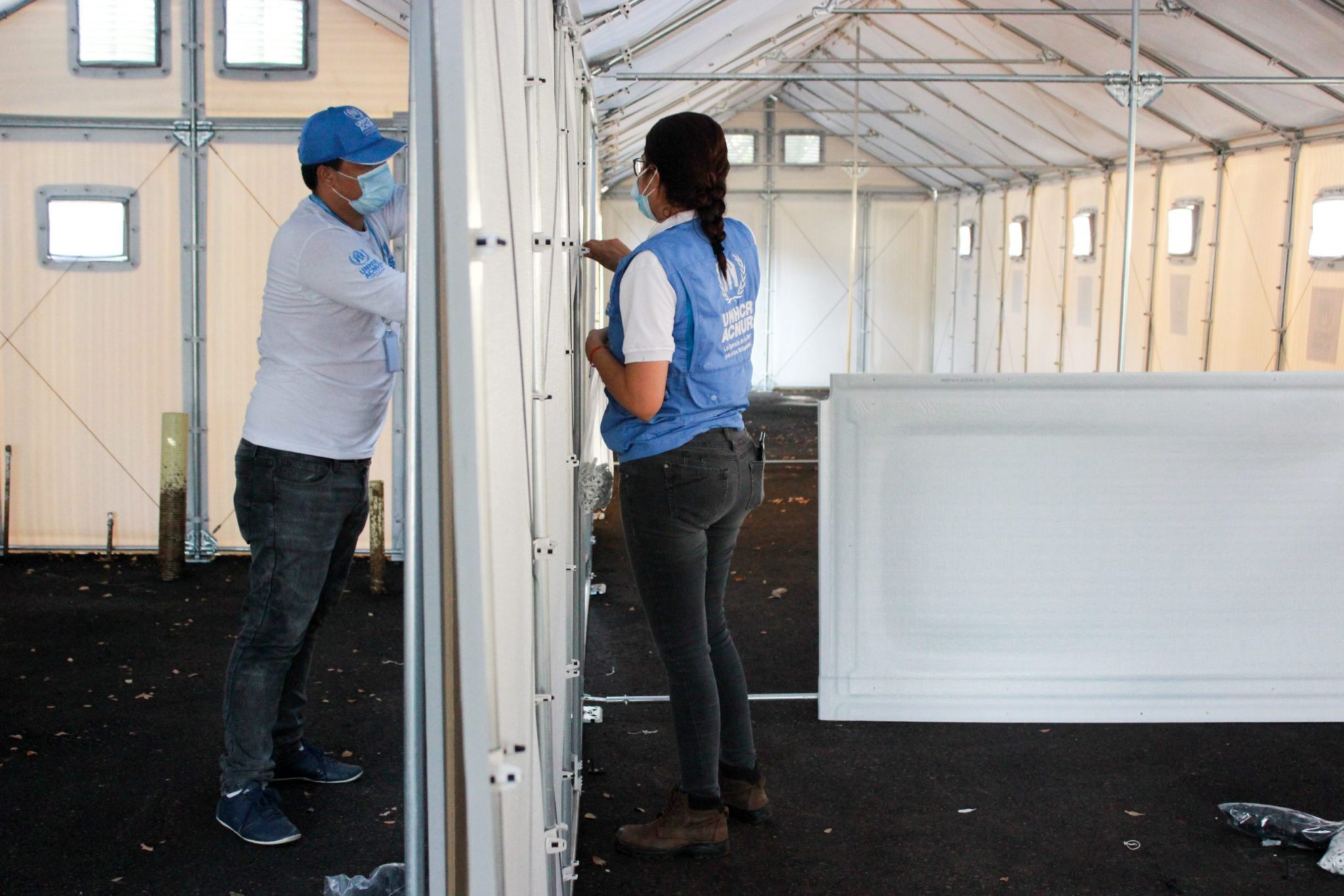As COVID-19 continues to spread, refugees and other displaced groups become even more vulnerable. As a measure to ensure the safety of displaced groups in Colombia, UNHCR has donated Better Shelters to local public health services.
In late October 2020, Colombia suffered their millionth case of COVID-19. By then, the country had suffered over 30,000 deaths as a direct consequence of the virus and was the eighth country to reach a million cases after the United States, India, Brazil, Russia, Argentina and Spain. Even though Colombia has managed to keep the mortality rates relatively low, Colombian public health services have been under immense pressure during 2020.
Under these circumstances, life has become even more difficult for the one million displaced Venezuelans living in Colombia. They represents a fifth of the total number of displaced Venezuelans who have fled their homes due to political and economic instability in the country.
Refugees and other displaced populations, particularly the elderly and those with pre-existing health conditions, may be more likely to be among the vulnerable groups at greater risk of contracting contagious viruses and communicable disease as they often have reduced access to health services and sanitation. In order to conduct proper care testing, functioning medical facilities have therefore become a necessity. UNHCR donated 102 Better Shelter units to public health services in Cúcuta, a Colombian border city and one of the main crossings for refugees coming from Venezuela.
In Cúcuta, the units function as an extension of the city’s hospital and are used by medical professionals treating both Venezuelans and Colombians.




